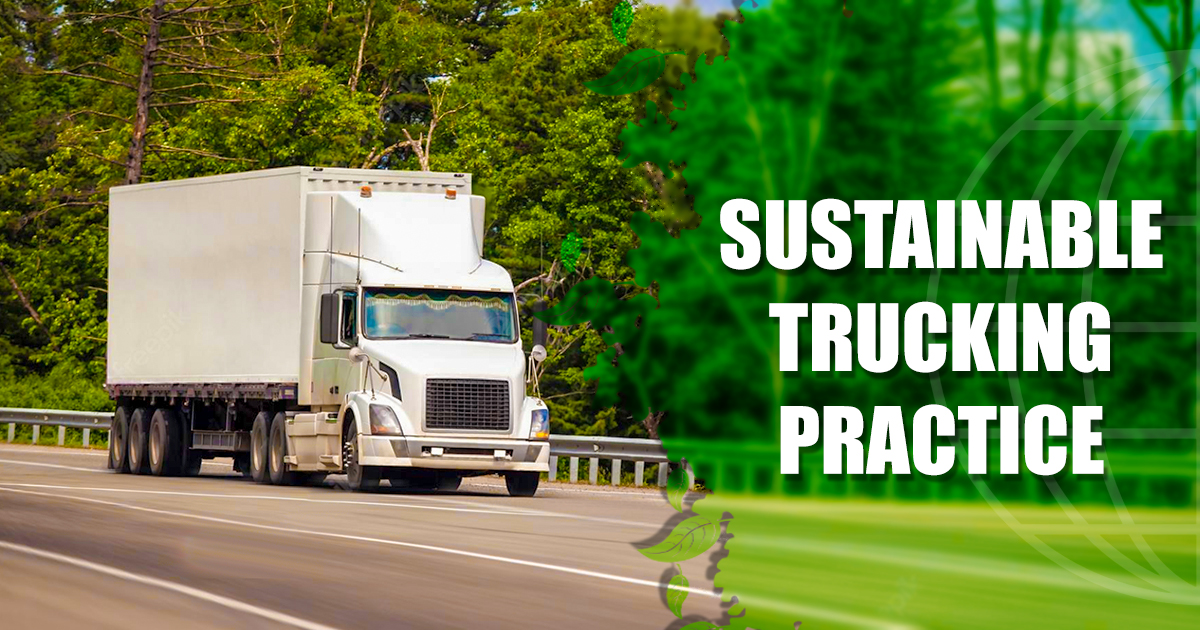
The trucking industry is one of the leading contributors to carbon emissions and climate change accounting for 14% in 2014. To reduce our impact on the environment, it is important for the trucking industry to adopt sustainable practices. The business sector is motivated to embrace corporate social responsibility. Which isis why more and more trucking companies are implementing environmental initiatives. Truck drivers are the most visible members of the vehicle fleet. They have a unique opportunity to help the environment and contribute to social progress through their actions. It’s past time for logistics workers to put in place sustainability measures. In this post, we’ll go over some ways for the trucking industry to reduce its environmental impact.
What Are Sustainable Trucking Practices?
1. Use Route Planning Technology
Finding ways to drive more efficiently is one of the most important things that the trucking industry will strive to do in the future to reduce its environmental impact. How can we reduce carbon emissions while increasing efficiency?
The first step toward improving efficiency is to improve route planning. Trucking companies are making significant progress in this area. Truckers who use better route-planning software are more prepared to optimize their efficiency. Better route planning is essential for reducing fuel costs. Thus, reducing also greenhouse gas emissions. It is also critical for timely delivery. It is significant because the demand for transportation services grows as delivery deadlines get shorter. Efficient trips result in less vehicle wear and tear and reduced long-term maintenance expenses.
2. Paperless Documentation
Switching to a paperless approach for documentation is another option. By going paperless with documentation, trucking companies may cut down on waste and carbon emissions. This process is also more efficient, as it allows for quicker documentation turnaround. In turn, this could lead to improved customer satisfaction rates.
Not only is a paperless approach more efficient, but it is also eco-friendly. When you eliminate the use of paper, you are helping to save trees. This, in turn, helps to reduce emissions and greenhouse gases. By making the switch to a paperless documentation system, you can do your part in saving the environment.
3. Electric Vehicles
Electric vehicles are an increasingly popular option for reducing carbon emissions. Electric vehicles have many advantages over traditional gasoline-powered vehicles. Examples are lower fuel costs, lower maintenance costs, and zero emissions.
Trucking companies are beginning to experiment with electric vehicles as well. For example, UPS has tested electric delivery trucks in London and Paris. In the United States, electric trucks are being used for short-haul deliveries in California and Texas. In Asia, the Philippines, Japan, South Korea, and China are all working to advance in this field. As battery technology continues to improve, it’s likely that we’ll see a greater number of electric trucks on the road in the years to come.
Sustainable Trucking Practices Are Here To Stay
The trucking industry is one of the most prominent contributors to carbon emissions. However, there are numerous sustainable trucking practices that can be adopted to reduce these harmful gases. Some of the top sustainable trucking practices include using optimizing routes through route planning technology, investing in electric vehicles, and practicing proper fleet maintenance. By following these tips, the trucking industry can help do its part in saving our planet.
SEE ALSO:
